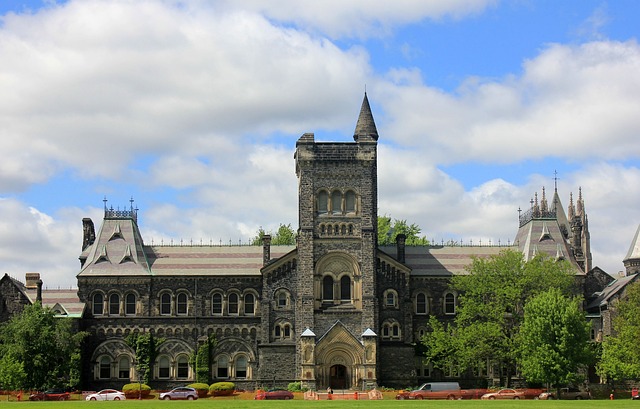Choosing where to get your degree can be hard for a lot of students. It can be more confusing because people often use the words college and university to mean the same thing, even though they have different meanings. Although people often use the word “college” to refer to any kind of higher education, there are actually important differences between colleges and universities. To make a smart decision, students should understand these distinctions.
Also read: Best 10 Free Online Learning Platforms for College Students: Learning Beyond the Classroom
What is A College?
The word “college” can have different meanings. Sometimes, when people use the term, they are talking about a place that gives out degrees similar to a university. However, it can also mean a school that provides training for a short period of time and focuses on skills that are needed for a specific job.
Usually, schools with the word “college” in their name are smaller and focus more on undergraduate education, although it’s not always true. It’s important to note that there are different kinds of colleges within the overall category of “college. ”
College Based on Careers
These places are also known as technical schools, trade schools, or vocational schools. They offer training that is focused on helping students get ready for work. After finishing school, students usually get a paper that shows they completed their studies. It can be a diploma, certificate, or associate degree. Most programs only take two years to finish, but some career colleges have bachelor’s and master’s programs that can take three to four years to complete.
These colleges usually offer programs in subjects like business, design, healthcare, IT, culinary arts, HVAC repair and more.
Junior Colleges
Community colleges are educational institutions that offer a variety of academic and vocational programs at a more affordable cost. They serve as a bridge for students who want to continue their education after high school or for adults who are looking to improve their skills for better job opportunities. These colleges typically have smaller class sizes, making it easier for students to receive individualized attention and support.
Additionally, community colleges often have flexible scheduling options, allowing students to attend classes at convenient times while still balancing work or family responsibilities. Overall, community colleges provide accessible and affordable education to help students achieve their academic and career goals.
Community colleges are also known as junior colleges. They provide associate degrees which usually take two years to finish. Some community colleges also have certificate programs that can be completed in two years. Community colleges are really helpful for students. Because they are usually smaller than universities, they provide smaller classes and more personal interaction with teachers. Also, because most community colleges accept all applicants, if you have a high school diploma or GED certificate, you can sign up.
A cheap cost for education is also very appealing. Community colleges are much less expensive than 4-year schools, and can cost only a quarter of what a 4-year school charges. Because of this, a lot of students decide to begin their studies at a community college and then move to a regular 4-year college or university to finish their bachelor’s degree.
Liberal Art Institutions
Liberal arts colleges are schools that offer four-year programs for undergraduate students. These programs focus on teaching students important skills like problem-solving, critical thinking, and effective communication.
Regarding the specific courses available to students, they are generally more general and cover a range of subjects such as history, languages, math, and life sciences. These programs also offer fewer options in the subjects you can study and typically do not have professional programs such as medicine or engineering.
Most liberal arts colleges are not owned or funded by the government, but some of them are. Usually, students who finish college with a liberal arts degree continue their education by getting a master’s or doctoral degree at a university that takes four years to complete.
What does the term “university” mean
Usually, universities are big schools that provide different kinds of degrees for both undergraduate and graduate students. However, some schools are not very big. In the fall of 2016, Marymount California University had only 985 students, according to the U. S News data refers to information or statistics that are related to news events or stories.
There are different types of universities. Some are owned by the government and are open to everyone, while others are privately owned and have certain restrictions.
State and local governments help pay for public universities, and each state will have at least one state university. These schools charge less money for students who live in the same state compared to students who come from a different state. The main concept is that families who live in the same state as the university have helped fund it with their taxes throughout the years, but families from other states have not done the same.
Public universities are usually big and can have many thousands of students. These schools also have a strong dedication to conducting research.
Private universities do not get money from the government. Instead, they get money from students paying for classes, money they were given by people, and money people give them privately. In private universities, the fees are usually more expensive compared to public universities. However, many private universities provide significant help with money to help cover the expenses.
Private universities are schools that are not funded by the government and are paid for by students. Some examples of private universities are Ivy League schools like Princeton University.
Research Universities and Teaching Universities
In most universities, professors divide their time between teaching and doing research. However, the amount of focus put on each of these two things can be very different depending on the institution.
As said before, universities that focus on research are usually big, public schools that offer many different programs and majors at both undergraduate and graduate levels. These schools focus a lot on research, so they usually have really good facilities like big libraries and advanced technology. They also have teachers who are very knowledgeable in their subject.
It’s important to note that many undergraduate students cannot reach these experts because their classes are often taught by graduate teaching assistants instead of the professors. These classes can also be very big, with many students gathered in large lecture halls. It can make it very hard to talk to teachers and have a good conversation with them. Something important to remember.
On the other hand, teaching universities prioritize teaching students instead of doing research. Professors at these schools usually have a lot of classes to teach, but they still find time to help and guide students.
What Differentiates College And University
Colleges are smaller schools that offer a wide variety of undergraduate degrees to students. Universities are usually bigger than other schools, but not always, and they have different programs for students who want to get a bachelor’s or a master’s degree. Many universities, especially those that are public, make it their goal to create new knowledge through research.
The Institution that is Just Your Fit
I hope you now understand the basic differences between colleges and universities. But now you also understand that there are many different colleges and universities, and you might be thinking about how to figure out which one is the best fit for you.
Here are some important points to remember when making a decision:
1. What do You want for your Career?
You might not need a college degree for a lot of well-paid and in-demand jobs.
If you believe that getting job-ready quickly through training that focuses on your career is the best option for your goals, then choosing a career program might be a good decision. If you want to get a bachelor’s degree for your dream job but want to save money, you can begin your education at a community college and then transfer to a four-year university later on.
2. Review Your Academic Record
It’s important to check your grades and test scores from previous years to see if you have a good chance of getting accepted. Different colleges and universities have different requirements for admission, but most of them expect students to have a certain level of academic success. Also remember that it can be very hard to get into the most popular schools because there are a lot of people competing for limited spots.
If your grades aren’t good enough for most four-year colleges, you should think about applying to a community college or career college instead. These types of schools usually accept all students. This means that anyone who has finished high school or has a GED can sign up.
Alternatively, consider pursuing career certifications which allow you to start working in a specific field immediately, without the need to be concerned about your past academic performance.
If you want to get a bachelor’s degree but your grades are not good enough, going to a community college for a few years can help you prepare to transfer and achieve your goal.
3. The Learning Style that Suits You
As we said before, the number of students in a college class can be very different compared to a public university. A big university class might have over 200 students, but a small liberal arts college class might only have 20 students.
If you want individual attention from teachers, you should look for colleges with smaller class sizes.
On the other hand, if you’re someone who likes to learn on your own and enjoy the idea of getting help from experts in your area of interest, a big research university would be a great fit for you.
4. Look at Your College Experience
In addition to classes, college life also includes finding a place to live and experiencing the atmosphere of the campus. Many 2-year colleges do not have places for students to live, but most 4-year colleges and universities do have housing options on campus. What do you think you would like more.
Do you like being involved in campus life all the time. If yes, then a 4-year university might be the right choice for you. If you don’t like the idea or if you are an adult learner with a family, then career colleges and community colleges might be a better fit for you.
One more thing that plays a part in college life is doing activities outside of class. Many 2-year colleges make it extremely difficult to participate in activities like clubs. However, students who attend 4-year colleges have more chances to participate in clubs, professional groups, sports, fraternities, and sororities.
5. Stay Updated with the Application Deadline
Choosing the right college for your career goals can be difficult. It becomes more complicated when you have to consider application deadlines. Basically, here’s what you should know: There are usually 4 different deadlines to apply, and each school has their own time when you can enroll. So, you might really want to go to one school but later discover that their application process complicates your plans a lot.
6. Review Your Finances
How much money can you actually pay for your education. It’s one of the most important questions students and their families ask. Community colleges and trade schools will cost less to go to compared to a 4-year university. This is the reason why a lot of students choose to start their college education at a 2-year school and then move their credits to a 4-year college to get their bachelor’s degree.



















